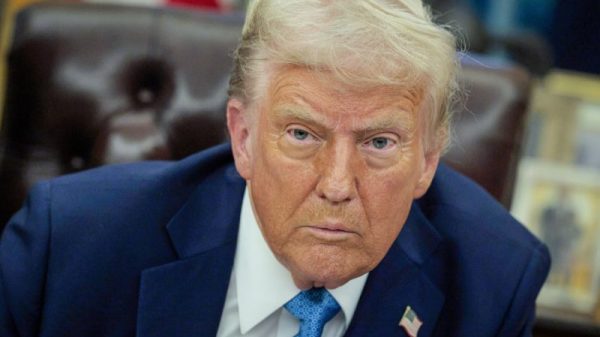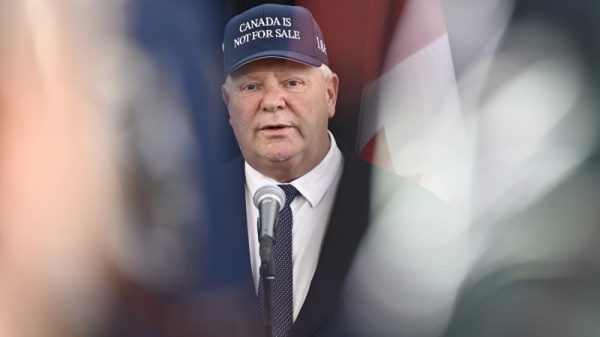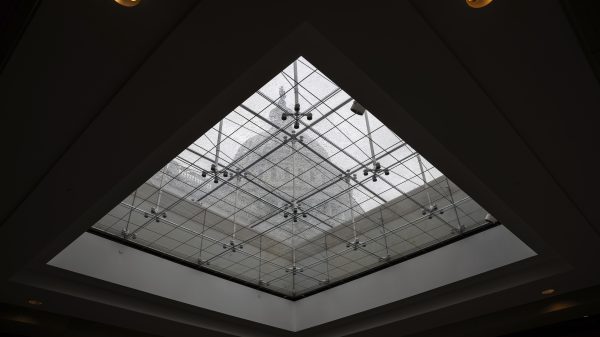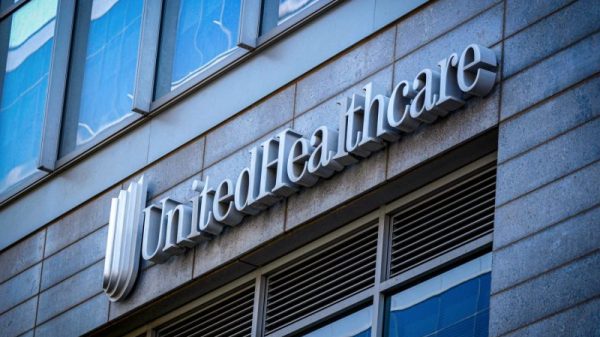The president in charge during the longest government shutdown in U.S. history has returned to the White House, current government funding expires in less than six weeks — and on Capitol Hill, people are nervous.
It’s not just President Donald Trump’s history of leading the country through a 35-day funding lapse that has lawmakers worried about his appetite for another one in March. It’s also that Trump’s actions in his first two weeks back in office are stifling bipartisan negotiations toward a funding deal as the president — and his “government efficiency” chief, Elon Musk — work to bulldoze the federal bureaucracy while freezing billions of dollars Congress already enacted and firing federal workers.
“I don’t think anybody thinks a shutdown is a good thing. But the politics are such that we could certainly stumble into one without meaning to,” House Appropriations Chair Tom Cole, an Oklahoma Republican, said in a brief interview Tuesday.
The new president’s truculent first days in office have created an especially unfavorable climate on Capitol Hill for landing any cross-party accord, whether that’s a “grand funding deal” ahead of the government shutdown deadline or an agreement to lift the debt limit to prevent the U.S. from defaulting on more than $36 trillion in loans in the coming months.
While the Democratic leader in the House demands that Trump’s funding freeze be “choked off” as part of any funding agreement, Republican lawmakers say it will be Democrats who take the fall for causing a funding lapse if they hold that line. And so the shutdown blame game begins again.
“The president issued an executive order to curb spending. I highly doubt Republicans are going to rescind that. I don’t see that happening,” Rep. Lisa McClain (R-Mich.), the chair of the House Republican Conference, said late Tuesday. “That’s on Dems if they want to shut it down.”
Behind closed doors, Cole and Congress’ other three top appropriations are trying to strike a bipartisan deal on the first step toward funding the government by the March 14 deadline: One overall spending total for the military and another for non-defense programs. From there, it usually takes at least a month to negotiate and finalize the dozen individual funding bills. The clock is ticking fast.
The exasperated Democrats sitting opposite Cole at the negotiating table say any good faith agreement with their GOP counterparts is meaningless if Trump disregards the will of Congress by using “impoundment” to withhold funding they pass into law.
“If the White House is not going to honor an agreement and use impoundment, then it is hard to come to agreement,” Washington Sen. Patty Murray, the Senate’s top Democratic appropriator, said in a brief interview Tuesday.
Democrats want Trump to unfreeze foreign aid and billions of dollars already promised to federal contractors and local governments, while also stopping Musk from dismantling agencies like the U.S. Agency for International Development. They also want Trump to promise he will sign into law — and then actually follow — whatever bipartisan funding deal they might strike in the coming weeks, especially after he and Musk goaded GOP leaders into disavowing the December spending package all parties had previously approved.
“We need assurances. That’s all I’m going to say,” Murray said.
Congress’ four funding leaders — Murray and Cole, along with Senate Appropriations Chair Susan Collins and the House’s top Democratic appropriator, Rep. Rosa DeLauro of Connecticut — all praised each other’s efforts.
“Everybody in the room of goodwill, wanted to move forward” is how DeLauro described the ongoing funding negotiations between the so-called “four corners.”
But DeLauro is also wary. “Don’t tell me that all bets are off. That we’re going to come to a deal … and then all of a sudden Elon Musk or some other self-subscribed unchecked billionaire decides it’s not to his liking. Hell no.”
Trump already learned lessons on the toll of a government shutdown in late 2018 and early 2019, when funding to parts of the federal government lapsed for five weeks while he faced off with Democrats in Congress over funding for the border wall. It was a fight Trump ended up losing.
“I actually don’t think Donald Trump — having been through it — I don’t think he found it rewarding,” Sen. Kevin Cramer said Tuesday. “So I think he’s pretty serious about getting something done.”
The North Dakota Republican also noted the other main factor at play: the current fury of lawmakers in the minority party who have the power to tank a funding bill they don’t like given the narrow GOP majorities in both chambers. In the House, especially, are a number of fiscal conservatives who never vote for funding bills, no matter what. It means any funding bill will require Democratic support to pass.
“God, I hope that doesn’t happen. I mean, I really don’t,” Cramer said of the prospects of a government shutdown in March. “The Democrats aren’t in much of a mood to help.”
If top lawmakers can’t come to an agreement to keep the government funded, or if Trump bucks that deal, the new president would have some control over what federal efforts would continue beyond the March 14 deadline.
Trying to stem some of the public impact of the partial government shutdown in 2019, his administration tapped into park entrance fees to keep national parks open, a move federal watchdogs found in violation of the law. With Musk empowered now to compel entire government offices to shed staff or shutter entirely, the stakes are higher for what a federal funding lapse could entail this time around.
The effects are also, generally speaking, more difficult to quell the longer a government shutdown lasts, as benefit payments like SNAP food assistance are eventually withheld.
“These things get worse and worse and worse the longer they go on,” said Bobby Kogan, who served during the Biden administration as adviser to the White House budget director.
Kogan, who now works for the liberal Center for American Progress, said he is “skeptical of the idea that Trump will deliberately shut us down as another way to stop spending, because shutdowns are deeply unpopular.”
But Trump’s funding freeze and unwillingness to abide by funding caps enacted two years ago under then-Speaker Kevin McCarthy and President Joe Biden create a “real risk.”
Katherine Tully-McManus contributed to this report.


















